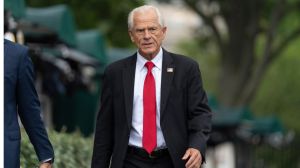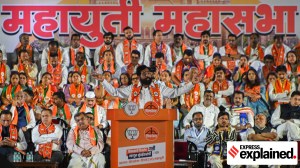Wake up, the future is calling
Five years after the 1992 Earth Summit in Rio, Agenda 21 remains, for the most part, a dead letter. Rio plus five'' looks embarrassingly ...

Five years after the 1992 Earth Summit in Rio, Agenda 21 remains, for the most part, a dead letter. 8220;Rio plus five8221; looks embarrassingly like 8220;Rio minus five8221;. How long can we afford the luxury of inaction? 8220;We are hurtling into the future, without any brakes and in conditions of zero visibility. Yet, the faster a car goes, the brighter its headlights must be8221;, warned Federico Mayor, Director-General of the UNESCO. Without proper attention, future generations are in danger of becoming the prisoners of unmanageable processes such as population growth, degradation of the global environment, growing inequalities between North and South and within societies, rampant social and urban apartheid, threats to democracy, mafia control.
Modern societies suffer from a dysfunctional relationship to time. A major contradiction is at work: on the one hand, societies need to project themselves into the future in order to survive and prosper. On the other hand, they must increasingly act in real time8217; and adopt short-term policies to cope with the challenges of globalisation while facing the onslaught of new technologies. There is no escape, it seems, from the tyranny of emergency: financial markets, the media, politics and development aid all march to the same tune.
Far from a passing phenomenon, the logic of emergency is fast becoming a permanent feature of our societies and of our policies. And yet, as evidenced by the contradictions of humanitarian aid or, in Europe, of the struggle against unemployment, short-term and emergency measures have little impact on long-term problems. Development in the 21st century will require long-term vision and long-term investments, such as in education and health for all, science and technology, especially new information and communication technologies, and infrastructure.
UNESCO has taken steps in that direction when it convened an international meeting in July 1997 in Rio de Janeiro on 8220;the ethics of the future8221;. An ethics of the future means more than a long-term vision. It means, first of all, that responsibility should now be turned toward the distant future.
What has been entrusted to us by nature and by past generations is fundamentally fragile and perishable: life, the earth, the city itself. We need to broaden the social contract to encompass future citizens. Our sense of responsibility toward them is a condition of their survival. Secondly, it also means the exercise of the principle of precaution, to take into account the possible consequences of our actions and also the uncertain, even the unforeseeable. Thirdly, it means that heritage extends beyond stones. It encompasses the intangible and the symbolic, the ethical, the ecological, the genetic.
In this spirit, UNESCO8217;s International Bioethics Committee has prepared a draft declaration on the human genome. Heritage thus becomes a foundation of human responsibility toward future generations, for 8220;in the absence of a link between the past and the future, any reference to tradition is doomed to appear as an ideological conceit, or worse, as a regressive fundamentalism8221;, as the Belgian philosopher Francois Ost said.
Caring about the future has profound political implications. Max Weber warned that 8220;the proper business of the politician is the future8221;. We must steer a path that will bring closer to us the horizon of the future, through the formulation of intermediate projects still within our reach. An ethics of the future is quite simply an ethics of time, which rehabilitates not only the future itself, but also the past and the present. Those who would have us ignore the plight of the poor and the excluded are usually the same who would have us turn a blind eye on disappearing languages or ignore the hole in the ozone layer.
An ethics of the future will be useless if it is not translated into educational, scientific, technological, economic, financial and political measures. For millions of human beings, an ethics of the future would bring the promises of the future closer to the present. As Craig Kielburger, the 14-year-old founder of Free the Children, put it, 8220;it also takes a child to raise a village.8221;
The writer is director of Analysis and Forecasting Unit, UNESCO
- 01
- 02
- 03
- 04
- 05































